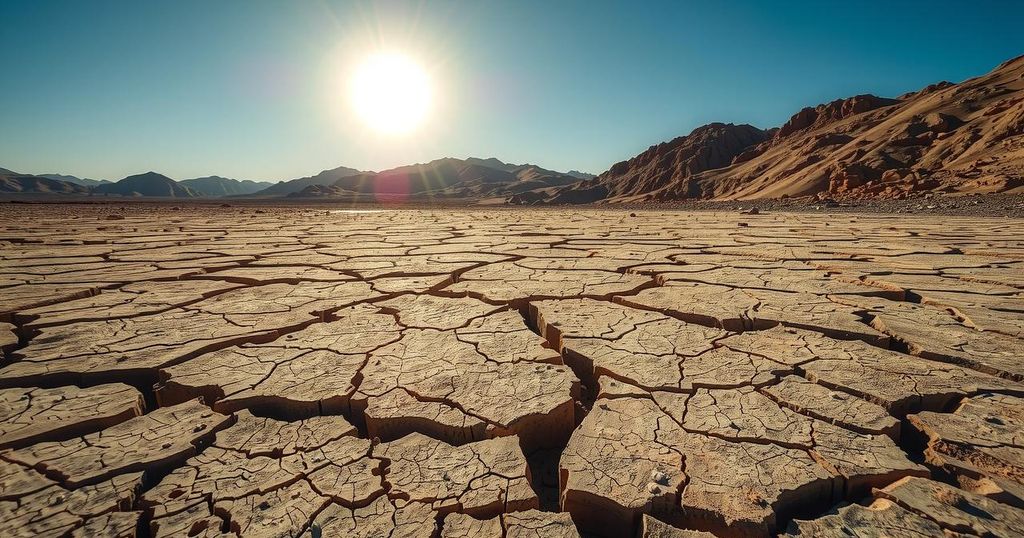A new study reveals that climate change has intensified a heatwave in South Sudan, with temperatures reaching 40 degrees Celsius. Women and girls are disproportionately affected due to their roles in household tasks. The ongoing political instability further exacerbates the challenges faced by the nation, which lacks adequate resources to cope with environmental disasters.
A recent study indicates that human-induced climate change has significantly increased the frequency and intensity of the heatwave currently affecting South Sudan. This situation poses an increased risk to women and girls, who are notably more impacted by the soaring temperatures. The country, suffering from ongoing instability since its independence in 2011, is poorly equipped to manage such climate-related crises.
As South Sudan grapples with persistent political unrest, concerns arise regarding the fragility of a peace agreement established in 2018, which concluded a brutal five-year civil war. The February heatwave has resulted in temperatures soaring to 40 degrees Celsius (104 degrees Fahrenheit) in various regions. Consequently, the government has closed schools in the capital, Juba, due to reports of an average of 12 students collapsing daily from heat-related ailments.
The study from the World Weather Attribution network suggests climate change has caused the extreme heat to be at least 2 degrees Celsius hotter than it would be otherwise, making the phenomenon ten times more likely. Kiswendsida Guigma, a climate scientist and co-author of the study, notes that climate change compounds the existing economic challenges and instability faced by the nation.
Significantly, many South Sudanese work outdoors, with housing conditions that lack air conditioning, further complicating adherence to public safety directives during the heatwave. The World Bank reports that access to electricity in the country was merely 8.4 percent in 2022, and drinking water remains scarce. Women and girls, traditionally responsible for daily tasks such as collecting water and cooking, experience heightened pressures due to the extreme heat.
Local resident Elizabeth Lodou Lochapio observes that women are forced to endure these harsh conditions to maintain their livelihoods. She recounts staying in one place to avoid the intense midday sun. Furthermore, researcher Sarah Kew states that heatwaves exceeding 40 degrees Celsius are rapidly becoming the new norm in South Sudan, occurring every two years and presenting significant challenges for the population. Projections indicate that the heat is likely to persist throughout March.
The recent study highlights the pressing impact of climate change on South Sudan, emphasizing that the severe heatwaves are correlated with human activity. Women and girls are particularly vulnerable, facing additional burdens in their daily lives amidst soaring temperatures. The ongoing political instability complicates the nation’s ability to adapt to such climatic challenges, indicating a critical need for global awareness and action regarding climate change.
Original Source: www.france24.com




